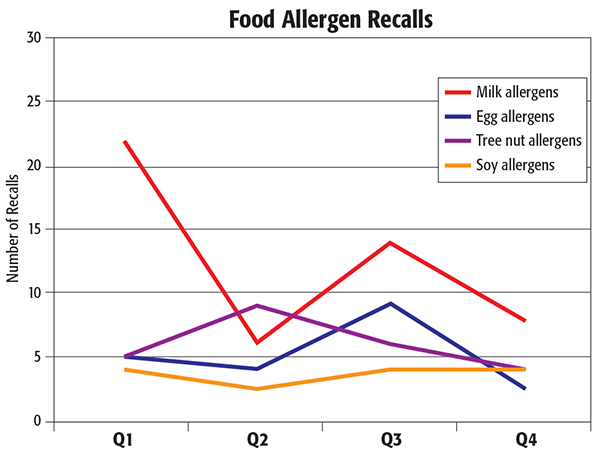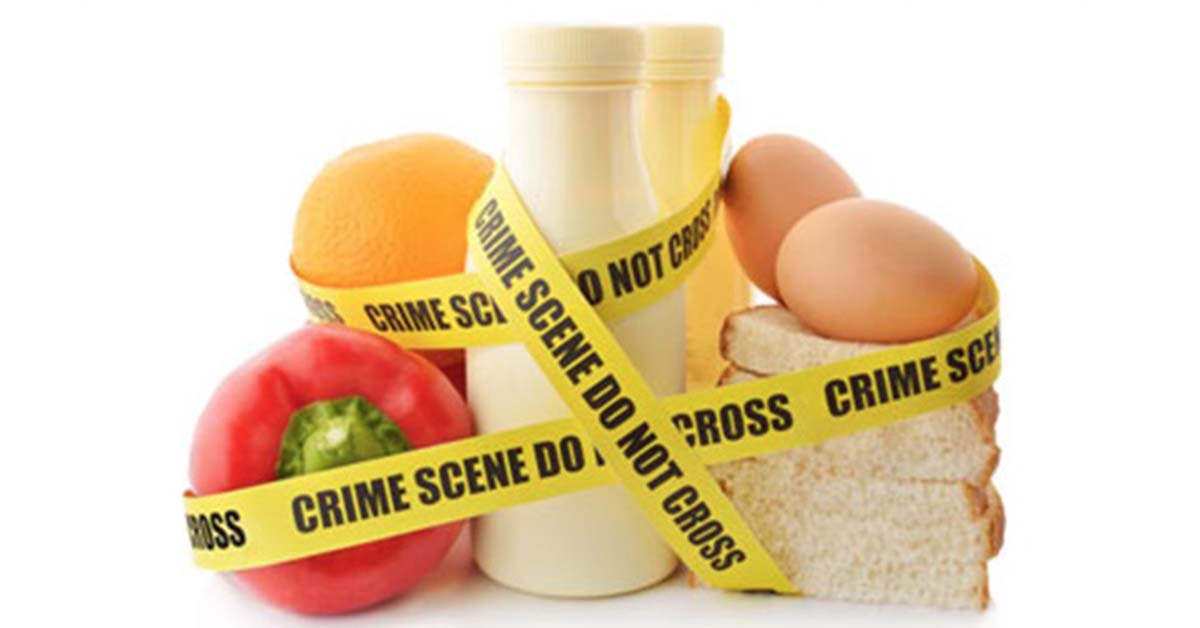You read or hear about them all the time: recalls of food products. But why are foods so often recalled by the manufacturer? Are they really that dangerous?
The answer is yes for different reasons.
Foods are often recalled because they have been found to contain harmful bacteria like listeria, salmonella, or E.coli. Ingesting foods or touching surfaces contaminated with them and touching your mouth can make you seriously ill.
Other foods are often recalled for foreign material contamination when a food product is found to contain non-food particles like metals and plastics. This can happen when there is a problem with the machinery comprising the manufacturing line, foreign matter is inadvertently introduced into the ingredient stream, or packaging is faulty. Such materials can be poisonous or perforate the alimentary or digestive tract.
But the main reason for recalls last year was undeclared allergens. This type of recall results from when an ingredient — most often one of the FDA designated “Top 9” allergens (peanuts, tree nuts, milk, eggs, soy, wheat, fish, crustacean shellfish and sesame) — is inadvertently introduced into a product that is not labeled to contain that ingredient. That can be dangerous — even life-threatening — for people with food allergies and related diseases who can be made ill by even the slightest trace of an allergen.
Food Safety Magazine tallied up the recalls for 2019 and found that 52% were due to undeclared allergens. The top allergens that caused the majority of recalls in 2019 were:
- Milk – 49
- Tree nuts – 24
- Eggs – 21
- Soy – 15
- Sulfites – 13
Wheat and peanuts also caused a lesser number of recalls.

How are undeclared allergens inadvertently introduced into food products?
Food products are often made in large facilities where many other food products are manufactured. Just because your product doesn’t contain a particular allergen, doesn’t mean that allergen is not processed on the same equipment or in the same facility.
An allergen may be introduced when machinery hasn’t been adequately sanitized between runs, when an allergen from one manufacturing line is inadvertently introduced into another line, or an ingredient has been contaminated with an allergen before it reaches the facility. That’s why many consumers concerned with food allergy avoid products made in facilities where their allergens of concern are processed and only purchase foods from manufacturers they trust to perform proper due diligence with their suppliers.
Manufacturers have to warn you when an allergen is processed in the facility, don’t they?
Contrary to popular belief, the answer is a resounding no. While manufacturers do need to warn you when any of the Top 9 allergens is an ingredient of a product, the FDA does not require warnings when an allergen is processed in the same line or facility as a product.
Label warnings like “Made in a facility that also processes milk” or “May contain traces of soy” are entirely voluntary. The FDA has nothing to say about when these advisory statements should be used, how they should be worded, or where they should appear.
Some manufacturers choose to include such statements, some choose not to, and some will warn you for one allergen and not another. To summarize: allergen advisories can warn you when a food product is not safe for a specific allergy, but their absence does not mean the product is safe.
For an explanation of how food manufacturers often make the decision to include such allergen advisories and resources to help you find safe products, see our article entitled “When a Manufacturer Says ‘Trust Us’ Regarding Allergens“.






